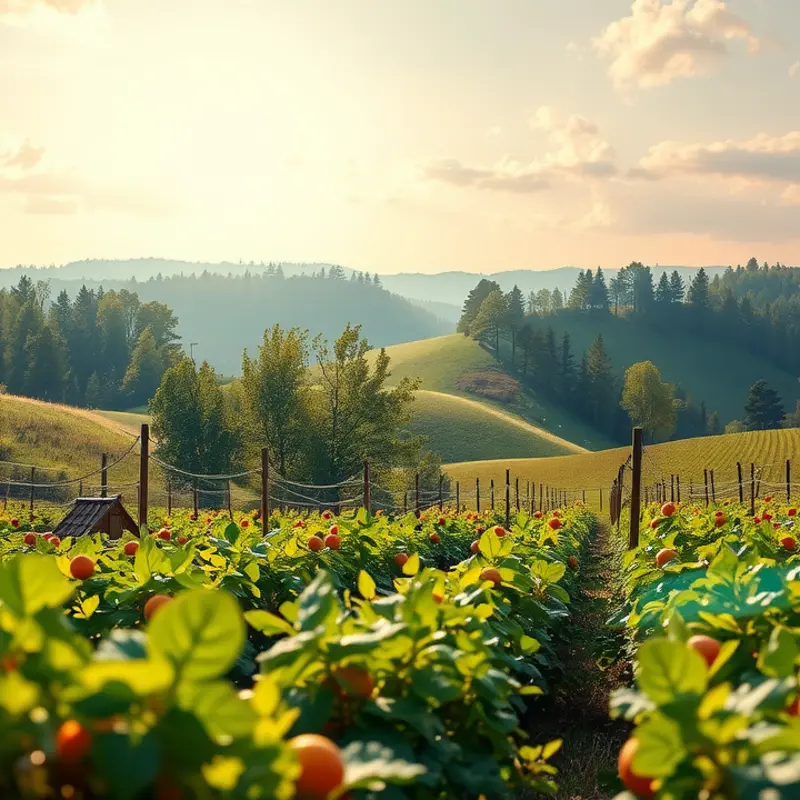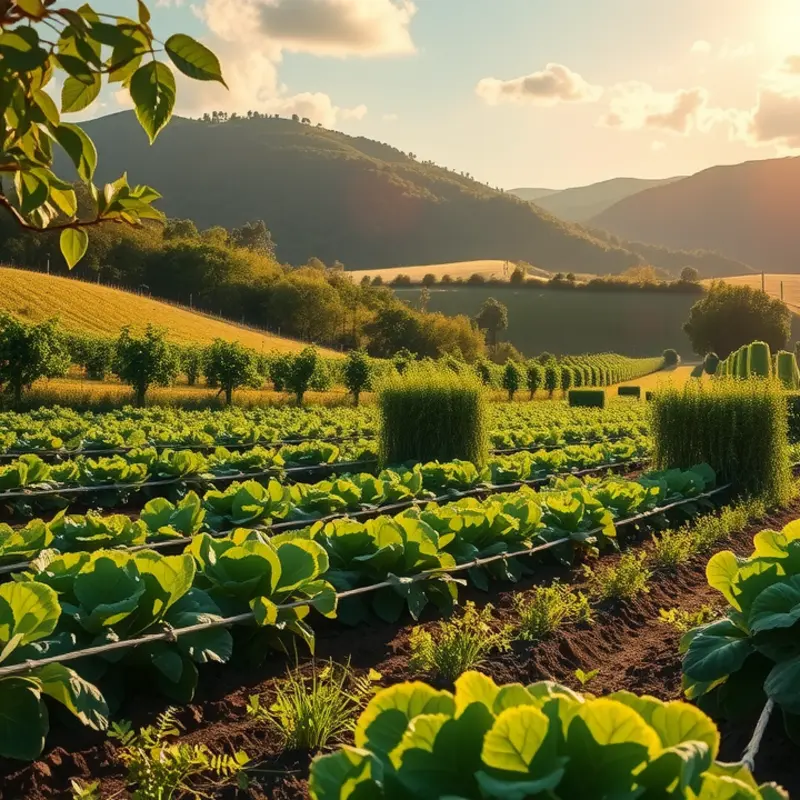Embracing sustainable culinary habits offers a powerful way to nourish both our bodies and the planet. From farm to table, every choice we make impacts the environment, and adopting eco-friendly practices can significantly reduce our carbon footprint. This guide aims to empower environmentally-conscious individuals with practical strategies that redefine everyday eating. By making mindful food choices and ingredients, we can enjoy delicious meals while contributing to a healthier ecosystem.
Grocery Choices: Prioritizing Local and Organic

Supporting local farmers helps reduce the carbon footprint of your meals. By choosing produce grown nearby, you not only bolster the local economy but also enjoy fresher ingredients. These foods travel shorter distances, which means less fuel is used, leading to reduced emissions. Additionally, local produce is often harvested at the peak of ripeness, offering better flavor and nutritional value.
Understanding the benefits of organic agriculture is another key aspect of sustainable eating. Organic farming avoids synthetic pesticides and fertilizers, which can harm the environment. By choosing organic, you’re supporting methods that build healthy soil and conserve water. Plus, organic practices promote biodiversity, ensuring that various plant and animal species thrive.
Making thoughtful grocery selections involves buying seasonal produce. Seasonal foods are naturally abundant and usually cheaper, reducing the need for costly storage and transport. Visiting your local farmers’ market can be an educational experience. Here, you can ask growers directly about their farming practices and learn more about what’s in season.
Recognizing eco-friendly certifications can guide your choices. Certifications such as USDA organic, fair trade, and non-GMO verified can signal environmentally responsible practices. While certification isn’t the only measure, it offers a starting point for identifying sustainable options.
Another impactful change is reducing the consumption of processed foods. These typically require significant energy and resources to produce, resulting in higher environmental costs. Plus, they often contain unhealthy additives that can detract from your well-being. By focusing on whole foods, you not only improve your health but also contribute to a more sustainable food system.
For more tips on reducing waste and making the most of your ingredients, explore eco-smart kitchen storage. This resource offers guidance on how to store food efficiently, minimizing waste and saving money.
Ultimately, the choices you make in grocery stores have far-reaching implications. Embracing local and organic options, acknowledging certifications, and steering clear of overly processed foods pave the way for healthier meals and a greener planet. Each mindful selection sends a powerful message supporting a sustainable and thriving ecosystem.
Cooking: Reducing Waste and Savoring Every Bite

Adopting eco-friendly eating habits extends into how we cook and manage food in our kitchens. An essential step is minimizing waste, ensuring that every part of our food finds a purpose. Smart cooking techniques and thoughtful meal planning are cornerstones of resource-efficient cooking that remains tasty and satisfying.
Start by repurposing leftovers creatively. Leftover rice can transform into a savory stir-fry or be the base of an exciting rice pudding. Vegetables from last night’s dinner can easily become part of a hearty soup or stew. Employing such strategies not only saves food from the trash but enriches the dining experience, encouraging a more diverse palate.
Another technique is utilizing vegetable scraps that often end in the waste bin. Carrot tops, onion skins, and celery leaves can make flavorful stocks or broths, adding depth to many dishes. This practice not only reduces waste but enhances the intrinsic flavors of your meals. For more inspiration on using such ingredients, consult practical ingredient batching ideas for effective meal preparation.
Understanding portion control is another lever to pull in reducing kitchen waste. Overestimating portion sizes leads to leftovers that often go uneaten. A mindful approach to portioning, where we prepare just enough, helps maintain freshness and ensures every meal is appreciated to its fullest potential.
Food preservation methods also play a crucial role in minimizing waste. By extending the shelf life of food items through proper storage, we reduce spoilage rates. For instance, pickling, freezing, or drying can preserve the nutritional value and taste of products that might otherwise expire. If you’re looking to improve your food storage skills, check out eco-smart kitchen storage, which offers insights on storing food more sustainably.
Meal planning itself fosters an organized approach to shopping and cooking, directly opposing the cycle of buying more than necessary. A well-planned shopping list ensures purchases align with the actual needs of upcoming meals, reducing impulse buys that lead to excess. Simultaneously, a plan also sharpens the focus on including versatile ingredients that can be used across different meals.
Incorporating these practices into your kitchen routine makes meals not only eco-friendly but also an exploration of culinary creativity. Cooking becomes a mindful and enjoyable act of sustainability, ensuring each meal prepared respects the resources invested in growing and producing our food. By reducing waste and savoring every bite, we contribute positively to our health and the planet.
Final words
Adopting sustainable culinary habits is both an impactful and enriching journey. Each conscious decision, from choosing local ingredients to reducing waste in the kitchen, adds up to significant benefits for the environment. By embracing these practices, you not only enhance your health but also contribute to the well-being of our planet. Remember, the path to sustainability is a personal one; even small steps can lead to meaningful change. So, continue to explore, learn, and enjoy the delicious offerings of eco-friendly eating.








